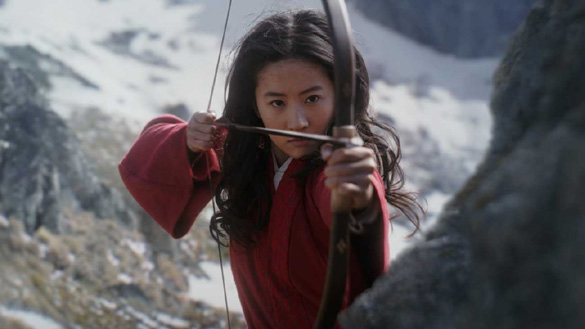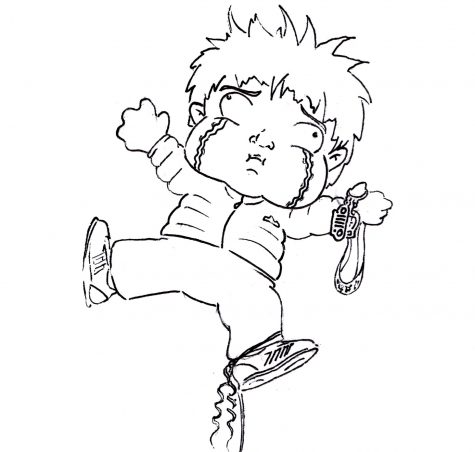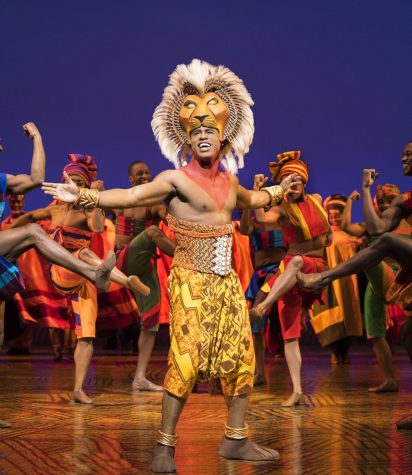Ethics of New Film Spark Fierce Criticism of Disney

November 3, 2020
Company recieves backlash over filming Mulan in Xinjiang.
As the highly anticipated live-action film, Mulan, concludes, a thank-you note from Disney to eight government bodies of Xinjiang briefly rolls down the screen. It would be insignificant if it was directed to almost any other Chinese province, but avid fans, politicians, and the media quickly took to the Internet and brought to light astounding news: Disney had knowingly filmed parts of the movie in the very province where the Chinese Communist Party (CCP) has been detaining, brainwashing, and abusing over a million Uighur Muslims. The credits specifically thanked the public security bureaus of Turpan (a city in Xinjiang with a large Uighur population) that run several internment camps. These camps, referred to as “Vocational Education and Training Centers” by the Chinese government, are internationally condemned, yet the construction of them has persisted since 2017.
Using methods alarmingly reminiscent of the fictional “Party” of Orwell’s 1984, the Chinese government is engaged in the largest mass internment of an ethnic-religious minority group since Nazi Germany, according to The Guardian. China denies accusations of abusing human rights, despite vast photographic and written evidence. Rather, the Chinese government claims that it is trying to control terrorism and extremism, and the centers are merely training facilities. In reality, many experts agree that there are no active problems to control, and the centers instead are a money source for the government.
Evidence in the form of leaked CCP documents match horrendous accounts from survivors released from the centers, and together they painted a picture filled with rape, sterilization, beatings, waterboarding, and other forms of physical and mental torture. Slight deviations in everyday life, such as increased electricity usage, is deemed suspicious by the Xinjiang government, and can be grounds for detaining an individual. The primary goal of the camps, according to expert interpretation of the leaked documents, is to forcibly transform the beliefs of the Muslims, and in turn destroy any culture or identities contradictory to that of the mainstream Han Chinese. Former prisoners have reported that to achieve psychological unity, the CCP forces Uighurs to study communist propaganda and to repeat affirmations to the Chinese President. In other words, Uighurs are violently pressured to believe that they did something wrong for simply being of another culture.
By refusing to acknowledge the human rights crisis in Xinjiang that is widely deemed to be cultural genocide, Disney is encouraging the cruel and unethical behavior of the Turpan bureaus. As one of the most powerful international companies, Disney could have easily used their influence to push back on Beijing. Instead, Disney’s CFO Christine McCarthy has only issued the brief statement: “[The controversy] has generated a lot of publicity. Let’s leave it at that.” She claimed that Disney’s primary interest in filming in Xinjiang was to get shots of the “unique landscape” of the province. By turning a blind eye to human rights issues, Disney is implicitly aiding China’s efforts to keep the world unconcerned with the ongoing atrocities against the Uighurs. Because the Mulan controversy has brought attention to the Uighur camps, China has banned major Chinese media from writing about the movie in an attempt to reduce spreading of discontent.
As an enterprise whose entire brand is based on happiness and inspiration, Brice Shearburn (‘23) asserted, “It’s really shocking to see Disney executives so blatantly thanking and praising the XUAR [Xinjiang Uygur Autonomous Region], the same region in which a mass cultural genocide is being violently enforced.”
Liberal and conservative politicians alike have expressed their opposition to Disney’s actions. Missouri Senator Josh Hawley (R) wrote to Disney CEO Bob Chapek arguing the hypocrisy of his company. Hawley stated, “Your decision to put profit over principle… is an affront to American values.” In response, The Trump administration back in 2019 blacklisted the public security bureau in Turpan and has enacted sanctions on several high-ranking Chinese officials with ties to human rights abuses. Presidential candidate Joe Biden’s campaign has also opposed China’s actions in Xinjiang. Disney has not responded to the public criticism and continues to promote the movie.
The tag #BoycottMulan had been used earlier this year following a separate controversy in which the starring actress of the titular character, Liu Yifei, expressed support for police brutality in Hong Kong. The hashtag has resurfaced in the past few months, indicating the opposition many social media users have for Disney’s choice to film in Xinjiang. The box office earnings of Mulan have thus far reflected this, as the movie has garnered far less than an action movie with a 200-million-dollar budget typically would. Besides its political ramifications, the movie itself has received mixed reviews. Richard Lawson from Vanity Fair called it a “dull reflection of the original,” and described it as lifeless, unsatisfying, and not entirely well done. Other critics have agreed that the film lacks emotional depth. However, some critics agree that Mulan’s impressive battle scenes and familiar protagonist make it an enjoyable watch.
As the movement for Asian representation in Hollywood has taken off with hits such as Parasite and Crazy Rich Asians, Mulan was an opportunity for Disney to take much-needed steps towards equality on the big screen. But, as Gaurav Muthusamy (‘22) put it, “While it is great to see some Asians on the big screen… I can’t ever come to support filming next to the Uyghur camps.” Furthermore, the Asian community has pointed out that although an Asian cast could be seen on the screen, the directors, producers, designers, and others off screen were predominantly white and the movie is superficial in its cultural nuances and whitewashed. Thus, many agree that Disney failed to capitalize on the opportunity that a Mulan remake offered.







